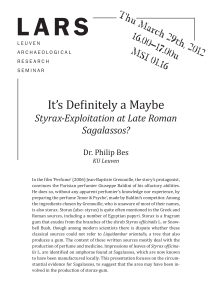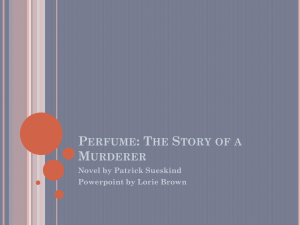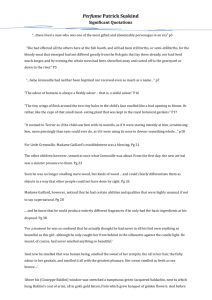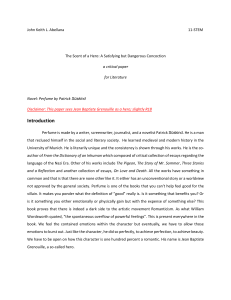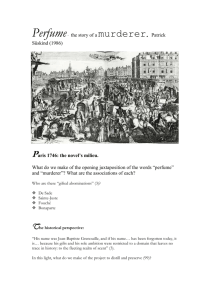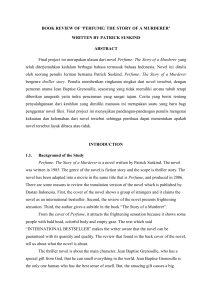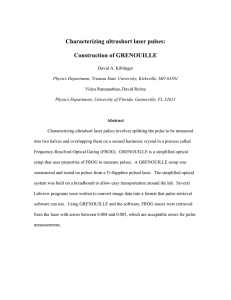Solano 2012-2013
advertisement
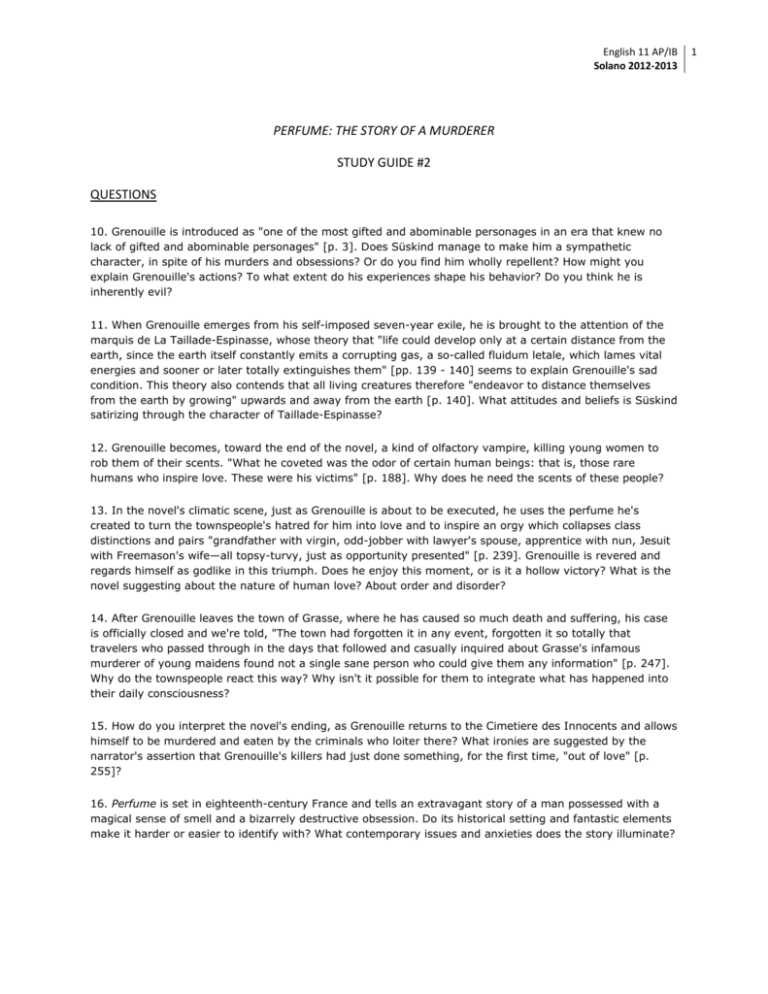
English 11 AP/IB Solano 2012-2013 PERFUME: THE STORY OF A MURDERER STUDY GUIDE #2 QUESTIONS 10. Grenouille is introduced as "one of the most gifted and abominable personages in an era that knew no lack of gifted and abominable personages" [p. 3]. Does Süskind manage to make him a sympathetic character, in spite of his murders and obsessions? Or do you find him wholly repellent? How might you explain Grenouille's actions? To what extent do his experiences shape his behavior? Do you think he is inherently evil? 11. When Grenouille emerges from his self-imposed seven-year exile, he is brought to the attention of the marquis de La Taillade-Espinasse, whose theory that "life could develop only at a certain distance from the earth, since the earth itself constantly emits a corrupting gas, a so-called fluidum letale, which lames vital energies and sooner or later totally extinguishes them" [pp. 139 - 140] seems to explain Grenouille's sad condition. This theory also contends that all living creatures therefore "endeavor to distance themselves from the earth by growing" upwards and away from the earth [p. 140]. What attitudes and beliefs is Süskind satirizing through the character of Taillade-Espinasse? 12. Grenouille becomes, toward the end of the novel, a kind of olfactory vampire, killing young women to rob them of their scents. "What he coveted was the odor of certain human beings: that is, those rare humans who inspire love. These were his victims" [p. 188]. Why does he need the scents of these people? 13. In the novel's climatic scene, just as Grenouille is about to be executed, he uses the perfume he's created to turn the townspeople's hatred for him into love and to inspire an orgy which collapses class distinctions and pairs "grandfather with virgin, odd-jobber with lawyer's spouse, apprentice with nun, Jesuit with Freemason's wife—all topsy-turvy, just as opportunity presented" [p. 239]. Grenouille is revered and regards himself as godlike in this triumph. Does he enjoy this moment, or is it a hollow victory? What is the novel suggesting about the nature of human love? About order and disorder? 14. After Grenouille leaves the town of Grasse, where he has caused so much death and suffering, his case is officially closed and we're told, "The town had forgotten it in any event, forgotten it so totally that travelers who passed through in the days that followed and casually inquired about Grasse's infamous murderer of young maidens found not a single sane person who could give them any information" [p. 247]. Why do the townspeople react this way? Why isn't it possible for them to integrate what has happened into their daily consciousness? 15. How do you interpret the novel's ending, as Grenouille returns to the Cimetiere des Innocents and allows himself to be murdered and eaten by the criminals who loiter there? What ironies are suggested by the narrator's assertion that Grenouille's killers had just done something, for the first time, "out of love" [p. 255]? 16. Perfume is set in eighteenth-century France and tells an extravagant story of a man possessed with a magical sense of smell and a bizarrely destructive obsession. Do its historical setting and fantastic elements make it harder or easier to identify with? What contemporary issues and anxieties does the story illuminate? 1
